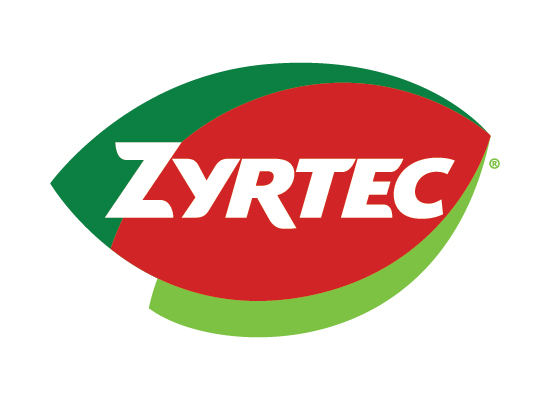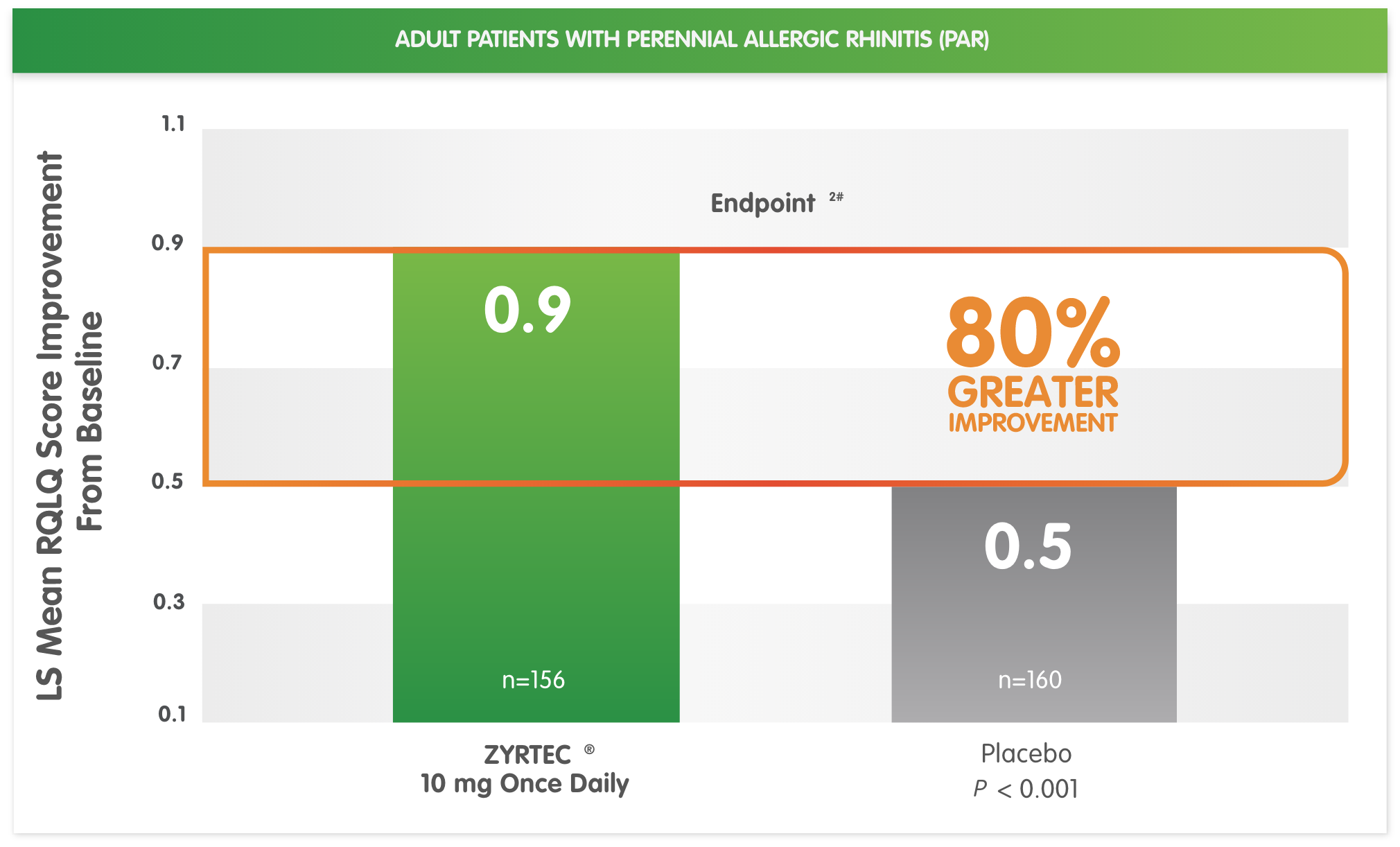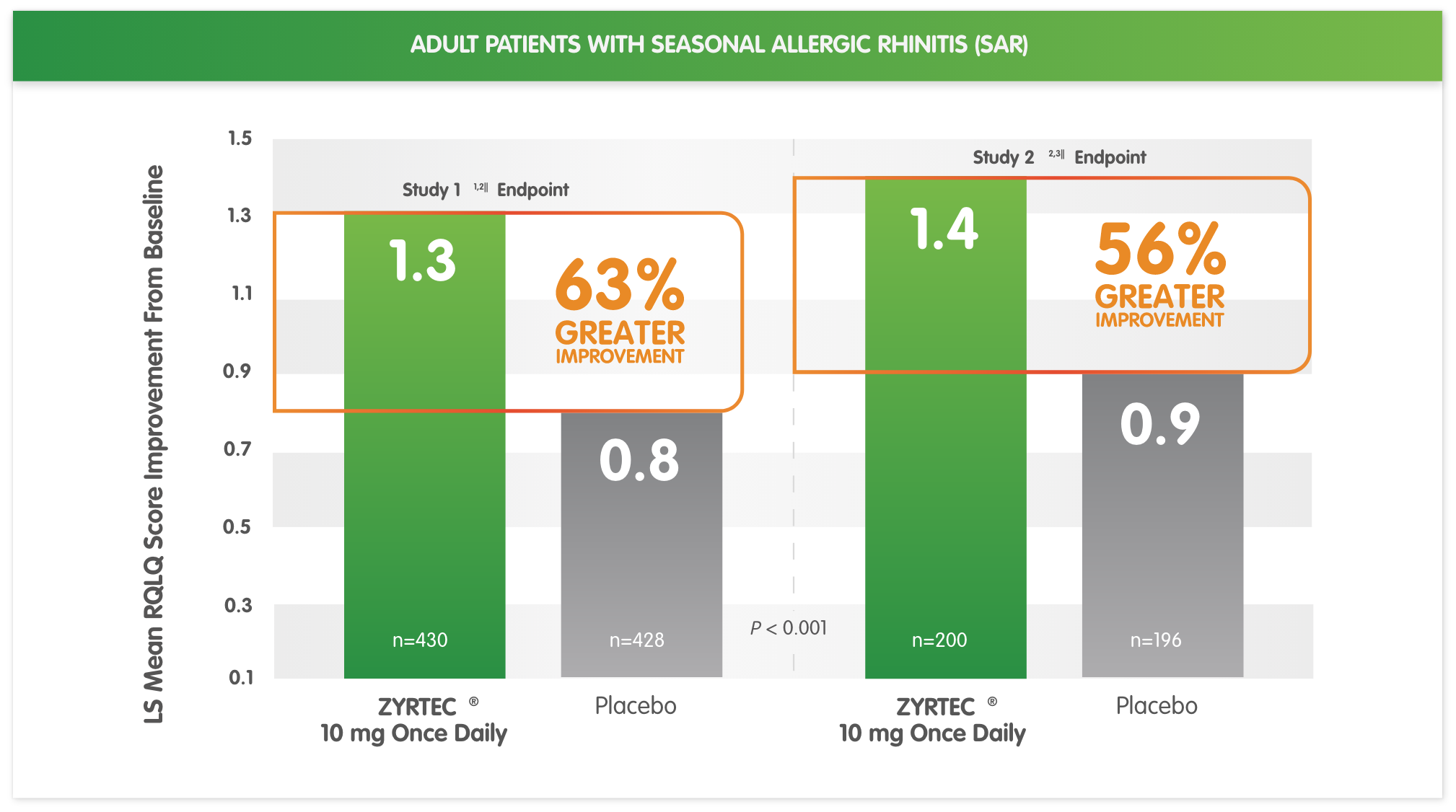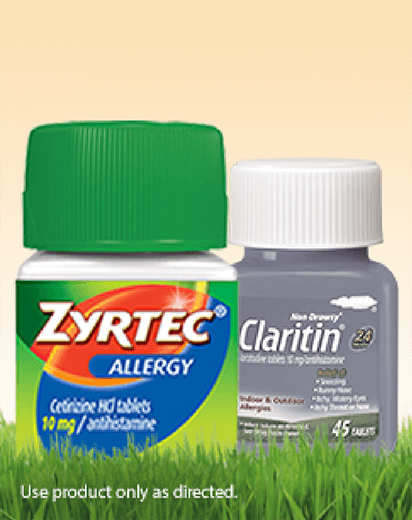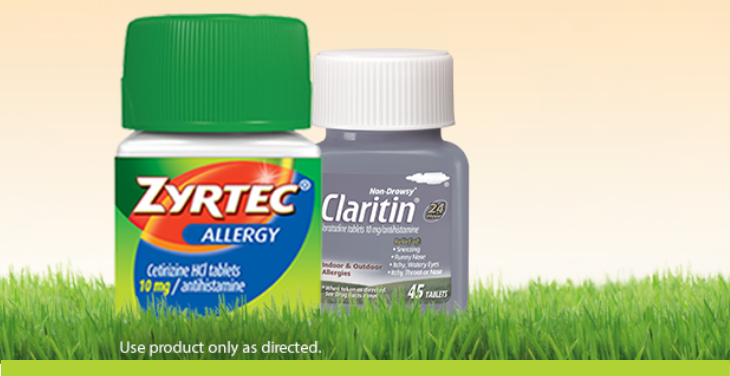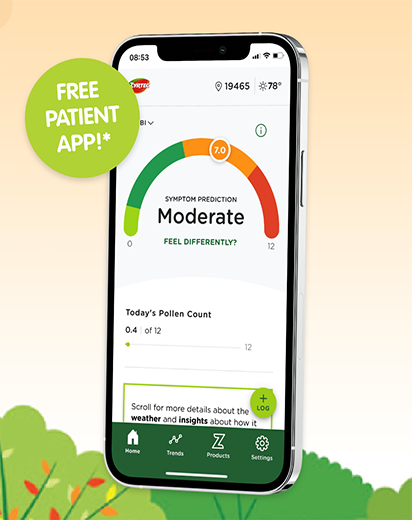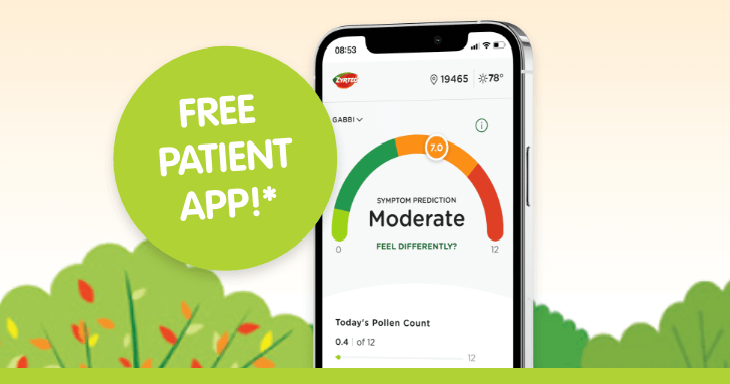*Randomized, placebo-controlled, 2-week study of adult patients with seasonal allergic rhinitis (N=431 for each treatment group).
†Impact on self-reported activity impairment was assessed using the Work Productivity and Activity Impairment-Allergy Specific (WPAI-AS) questionnaire, which measures performance based on impairment at work (limitations in the amount or kind of work done, work accomplished, or work done as carefully as usual) and activity impairment (limitations in usual activities, such as work around the house, shopping, child care, exercising, etc).
‡Patient disease-specific quality of life was assessed using the Rhinoconjunctivitis Quality of Life Questionnaire (RQLQ), which measures 7 domains: activity limitation, sleep problems, nose symptoms, eye symptoms, non–hay fever symptoms, practical problems, and emotional function.
§Multicenter, randomized, double-blind, placebo-controlled study including 316 adult PAR patients. Primary study endpoint measured changes in overall RQLQ score from baseline.
||Adult RQLQ assessed domains on a 7-point (0-6) rating scale.6
¶Two multicenter, randomized, double-blind, placebo-controlled studies including 1254 adult SAR patients. Primary study endpoint measured changes in overall RQLQ score from baseline.
#Endpoint = last post-baseline observation.
**ZYRTEC® 10 mg starts working at hour 1 and Claritin® starts working at hour 3, based on first dose on the first day of a 2-day study in 2 pollen-chamber studies. Primary endpoint measured mean improvement from baseline in Major Symptom Complex (MSC) severity score. MSC symptoms included runny nose, sniffles, itchy nose, nose blows, sneezes, and watery eyes.
References:
1. Murray JJ, Nathan RA, Bronsky EA, Olufade AO, Chapman D, Kramer B. Comprehensive evaluation of cetirizine in the management of seasonal allergic rhinitis: impact on symptoms, quality of life, productivity, and activity impairment. Allergy Asthma Proc. 2002;23(6):392-398.
2. Data on file. Johnson & Johnson Consumer Inc., McNeil Consumer Health Division.
3. Noonan MJ, Raphael GD, Nayak A, et al. The health-related quality of life effects of once-daily cetirizine HCI in patients with seasonal allergic rhinitis: a randomized double-blind, placebo-controlled trial. Clin Exp Allergy. 2003;3(3):351-358.
4. Day JH, Briscoe M, Widlitz MD. Cetirizine, loratadine, or placebo in subjects with seasonal allergic rhinitis: effects after controlled ragweed pollen challenge in an environmental exposure unit. J Allergy Clin Immunol. 1998;101(5):638-645.
5. Day JH, Briscoe M, Rafeiro E, Chapman D, Kramer B. Comparative onset of action and symptom relief with cetirizine, loratadine, or placebo in an environmental exposure unit in subjects with seasonal allergic rhinitis: confirmation of a test system. Ann Allergy Asthma Immunol. 2001;87(6):474-481.
6. Juniper EF, Guyatt GH. Development and testing of a new measure of health status for clinical trials in rhinoconjunctivitis. Clin Exp Allergy.1991;21(1):77-83.
